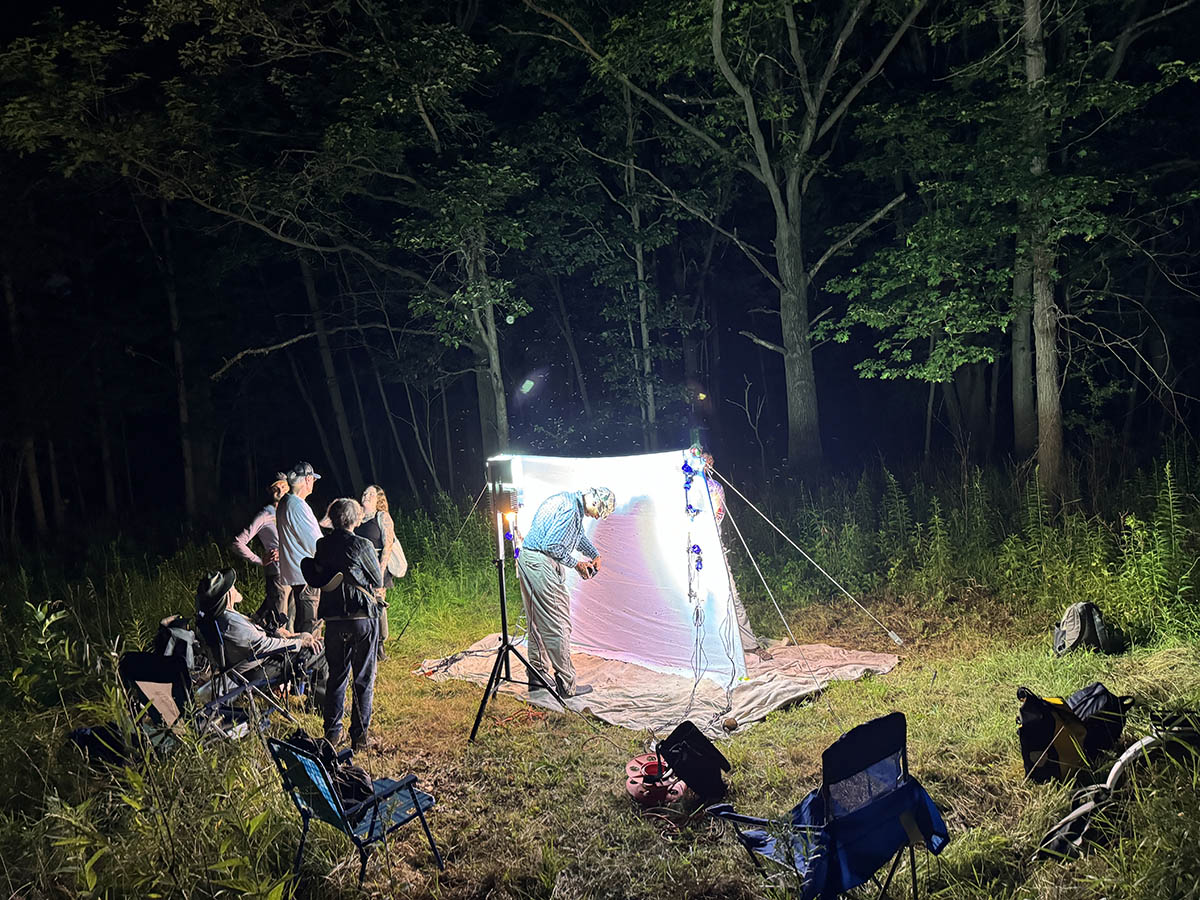Nothing has changed cultural ideas about sex and privacy quite like the Internet. How the algorithm rewards conflict, coupled with failed models of offline accountability, has encouraged a digital culture of surveillance, especially as it relates to bedroom behavior. This was the focus of a discussion at Pilsen Community Books on October 1. To promote the latest issue of socialist feminist magazine Lux, editorial assistant Asya Sağnak sat with contributors Kate Wagner and Carta Monir, a cultural critic and performance artist, respectively, to talk about sex and surveillance.
In her essay “Bringing Sexy Back,” Wagner gets at how the stakes are higher in digital-age sexual relationships, so they invite more pain and scrutiny. But hurt itself is not evidence of harm. She writes, “Punishing strangers for their perceived perversion is a form of compensation for a process that is already completed: the erosion of erotic and emotional privacy through internet-driven surveillance practices, practices we have since turned inward on ourselves.”
To her, on one end of this problem’s spectrum are the manosphere of chuds perpetuating a culture of misogyny and fear rooted in practices such as revenge porn and artificial intelligence deepfakes. But on the other are people who delight in circulating or dissecting so-called evidence—photos, videos, and the like—of sexual transgressions that is designed to invite ridicule. Isn’t my ex crazy? Wasn’t this Tinder interaction cringe? Look at this thirsty bitch I encountered in the wild. Small, private moments of human folly or misunderstanding become large-scale public fodder. What does repeatedly witnessing this behavior teach us to internalize about sex, desire, and vulnerability?
Her point resonated with me. The first time I read the article, my mind kept replaying an experience I had some years ago, very early in transition. I had begun to notice that I repeatedly attracted a certain kind of man with latent, unresolved homosexual desires who would become preoccupied with me without understanding why. One such man had gotten drunk and sent me a very sexually harassing message. I disclosed this to a friend further along in transition, hoping to experience camaraderie or compare notes about navigating these kinds of interactions. Instead, they quickly changed the subject.
A week later, I got a message from that friend asking if I wanted the man kicked out of his band. I was stunned. They hadn’t asked me any questions about what happened, including how I handled it (extremely cruelly, as I too often do). What did kicking him out have to do with anything? He can’t make music anymore because one time he got too drunk and told a trans person how badly he wanted to fuck them? Was the man going to know why he was kicked out? If so, how was the friend going to protect me from blowback? None of it made sense to me. All I wanted was my friend to be emotionally present for my experience, but they could only conceive of support through action—specifically, action that indicated zero tolerance for sexual harassment. Even one time was too many.
Wagner begins her piece with a similar story about wanting to emotionally parse a sexual experience with a friend who could only respond by choosing a villain—though in her case, she was labeled the bad one. When she described being sexually aroused by a haircut, her friend villainized her for eroticizing the hairdresser without the hairdresser’s knowledge and consent. She did not act on the thought, but to her friend, simply having it was a violation requiring some kind of penance. Their friendship did not last, much like my friendship with the person who offered to eject a man from his band for getting drunk and mildly sexually harassing me one time.
Small, private moments of human folly or misunderstanding become large-scale public fodder.
Cultural anxiety about sex is growing, and it’s especially affecting younger people. According to Scientific American, between 2009 and 2018, the proportion of adolescents reporting no sexual activity, either alone or with partners, rose from 28.8 percent to 44.2 percent among young men and from 49.5 percent to 74 percent among young women. While correlation doesn’t prove causation, there’s a parallel between the availability of home Internet, the explosion of social media, and the decline in sexual behavior. In 2023, an LA Times article headlined “A ‘failure to launch’” examined why younger people are having less sex, looking specifically at being overcommitted and interpersonally underdeveloped as leading causes. Could a culture of social surveillance be a contributing factor, too?
At the bookstore, Wagner and Monir spent an hour sharing how their experiences shaped them. Wagner noted an online tendency toward a fear of being wrong and how that manifests in fraught viral debates, like around which identities are allowed to use which labels, especially as they relate to articulating gender and desire. Monir noted that the Internet, by design, is an aggregation of lists; to “correctly” classify something not only makes it more searchable but also lets the people hoping to be most visible self-police how they’re seen, without questioning or even the act of labeling itself.
“There’s a real temptation to treat identity like a math problem,” Monir said. “It becomes, like, ‘Well, if A, then B.’ So it’s like, if I am a lesbian, then I am a woman. And, you know, if I am a trans woman, then I am not a faggot. . . . Like, anyone who falls outside the woman category could not possibly be a lesbian; there must be a different taxonomy for that concept. It feels . . . like we are trying to solve a set of problems that have been created by a culture of categorization.”
Wagner and Monir repeatedly circled back to a pervasive culture of bad faith. And why not? Social media companies and similar digital actors keep us engaged with their platforms by rewarding performances of outrage. The duo also observed a community-wide lack of conflict resolution and interpersonal communication skills when it comes to advocating for our needs and negotiating our desires. This is something Monir is especially versed in: She’s one of the most hypervisible online sex workers making art about BDSM, power, consent, identity, and disability. A through line is the way she feels she lives in truth and integrity, despite how messy and complicated her work—and, by extension, she—can seem on the surface.
As the talk neared its close, Wagner said, “We have a whole culture that is about denying ourselves pleasure in many different ways. . . . Like the wellness industry—it’s really about taking things away [or buying products] to make ourselves better.”
“We live under capitalism,” Monir added. “Capitalism is a bootstrap-ass culture where everything has to be about some form of self-sacrifice. I feel like sex for me is a way to escape that. . . . Love is communism.”
Surveillance Aesthetics explores how surveillance influences culture.
More in NEWS & CITY LIFE
The news you should know in the city you love.
Staff note: 2025 Night issue
October 16, 2025
The people who keep Chicago going from dusk till dawn.
October 16, 2025October 16, 2025
An exploration of the city’s dusk-till-dawn wildlife and the humans who study it
October 15, 2025October 15, 2025
Night time is prime time for releases at the Cook County jail.
October 15, 2025
Environmental activists have been monitoring the site since the process began in July, capturing photos and videos to protect residents from potential pollution before the demolition was paused last week.
October 10, 2025October 14, 2025
Uber and Lyft drivers are joining together to fight for better working conditions
October 8, 2025October 8, 2025






